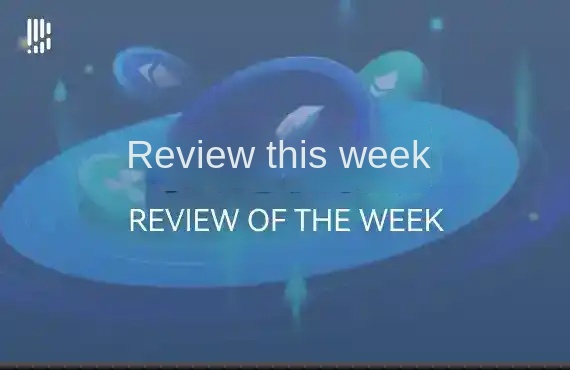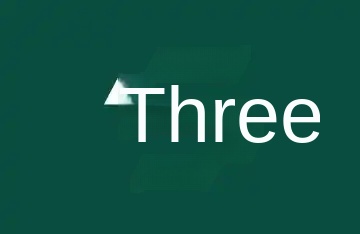Four Key Highlights of the Solana Conference, What's Next for SOL?
Original Article Title: What's next for SOL?
Original Author: Jack Kubinec
Original Translation: zhouzhou, BlockBeats
Editor's Note: The Solana Accelerate conference raised four unresolved issues: Slow adoption of the Firedancer client. Kraken's frequent support for Solana, potentially making it a leading exchange. Solana Mobile launching the SKR token, raising compliance questions. Increasing skepticism towards Trump at the event, which may affect the political outlook of the crypto industry.
The following is the original content (slightly reorganized for better readability):
Last week, I spent most of my time shuttling between various venues and surrounding events in New York, attending Solana Accelerate. These conferences usually concentrate on releasing a slew of announcements, and Accelerate was no exception, bringing important updates on Solana's core infrastructure, Solana Mobile startup projects, and tokenized stocks.
As I mentioned last week, changes have quietly taken place. Competition has intensified, and some previously lauded areas of the Solana ecosystem are starting to lose their luster. To better understand these potential changes, here are the four key questions that I was most concerned about after Accelerate:
What is the current status of Firedancer?
Jump released Frankendancer in September last year, which is a "work-in-progress" version of Firedancer, introducing some performance improvements to the Solana client. Earlier this year, it also started supporting the Jito bundle, allowing validators to more efficiently conduct MEV operations.
Currently, Frankendancer only accounts for 6% of Solana's total staked SOL (increased by approximately 1% from last week). This ground-up Solana client project has been hyped for many years, but so far, most validators do not seem to have adopted it.
A participant privately told me that Jump and Solana may have hyped Firedancer too early and too aggressively, suggesting that a more low-key approach to development and deployment might be more effective.
The key driver for Frankendancer could be financial incentives: its developers announced a staking delegation program during the conference, similar to the one used by the Solana Foundation.
Is Kraken Set to Become the "Favorite Child Exchange" of the Solana Ecosystem?
One of Accelerate's major announcements is that Kraken has launched xStocks — a tokenized stock product including Apple, Tesla, Nvidia, and more, which will be tradable on Solana in the future.
For global investors, this means they have a new way to invest in US stocks, but what's more noteworthy is Kraken's choice to launch on Solana. After all, Kraken has its own Layer 2 blockchain called Ink, which one would think they would prioritize. But I guess they see the commercial potential of the Solana ecosystem.
As a US-based exchange that has long been in the shadow of Coinbase, Kraken may have noticed the less than harmonious relationship between Coinbase and the Solana community — for example, Coinbase directs users to use Base.
Solana is currently the hottest blockchain ecosystem, and becoming the preferred exchange for Solana investors could mean big business for Kraken. Over the past few months, they have restored staking for US users, allocated some funds to Solana's treasury assets, and now launched tokenized stocks on Solana, clearly getting closer and closer.
What's the Logic Behind the SKR Token?
The mobile entrepreneurship project supported by Solana Labs, Solana Mobile, announced three major events on Accelerate:
a) Seeker phone will ship in August;
b) They will adopt a decentralized architecture to challenge Android and iOS;
c) They will issue a token with the codename SKR.
I was somewhat surprised by the news of this token. After all, Solana Labs has an office in New York, so one would think they need to be especially cautious about compliance — as issuing a coin can easily lead to legal trouble. Just look at the controversies sparked by the SEC's characterization of SOL as a security.
I speculate that Solana Labs (which currently incubates Solana Mobile) may believe that the current regulatory environment is more favorable, allowing SKR to avoid too much regulatory pressure. They also know that the buzz around the previous Solana phone was greatly fueled by token incentives.
As Solana co-founder Anatoly Yakovenko has always said, breaking the duopoly of the App Store is no easy feat. Perhaps SKR can lend a hand.
Is the Relationship Between Trump and the Cryptocurrency Community Beginning to Strain?
During Accelerate, members of Solana's newly formed policy research institution, the Solana Policy Institute, also made a noticeable appearance — seeking to expand Solana's influence in political circles. Speaking of which, I noticed a political-related development.
Former Unchained reporter Veronica Irwin posted last week on X stating: "@RitchieTorres Congressman said at the Accelerate event 'We should not commodify the channels to get into Congress or the White House,' and then the whole room applauded."
She also added: "I was surprised by the audience's reaction — recently at crypto conferences, you rarely see anyone expressing dissatisfaction with Trump."
However, just last week, Trump hosted a dinner for his Solana MEME coin holders, sparking ethical controversies. Currently, Congress is advancing legislation on stablecoins and crypto market structure, and if the Democratic Party starts turning against the crypto industry due to Trump's "profiteering" behavior, it could spell trouble for the entire ecosystem.
That being said, the SEC during the Trump administration did dismiss many lawsuits against crypto companies. If you ask me to bet, I would say that, combined with some of his recent pro-crypto statements, this relationship will likely endure.
Welcome to join the official BlockBeats community:
Telegram Subscription Group: https://t.me/theblockbeats
Telegram Discussion Group: https://t.me/BlockBeats_App
Official Twitter Account: https://twitter.com/BlockBeatsAsia
 Forum
Forum OPRR
OPRR Finance
Finance
 Specials
Specials
 On-chain Eco
On-chain Eco
 Entry
Entry
 Podcasts
Podcasts
 Data
Data


 Summarized by AI
Summarized by AI







